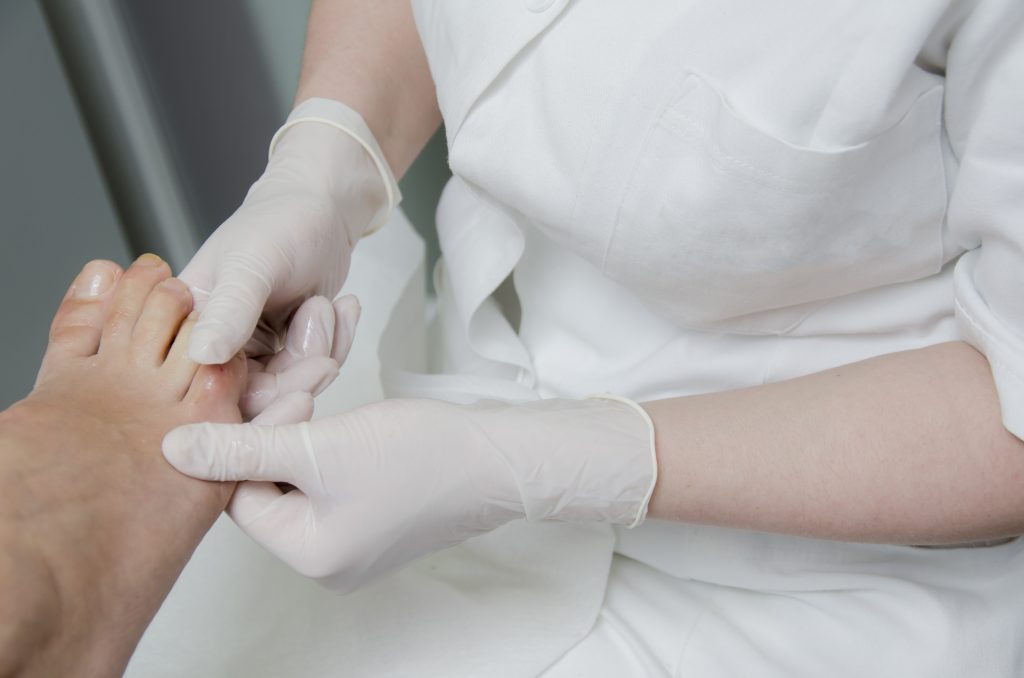- Home
- Health Center
- Health Info
- Diabetes & Footcare: Essential Tips
Diabetes
Diabetes & Footcare: Essential Tips


Diabetes affects how your body processes sugar (glucose), the main source of energy. Normally, the hormone insulin helps move glucose into your cells, but with diabetes, this process doesn’t work properly.
- Type 1 Diabetes: The body does not produce insulin, so insulin injections are required.
- Type 2 Diabetes: The body does not use insulin effectively. It’s often linked to lifestyle factors and can be managed with healthy habits and medication.
Understanding Foot Complications in Diabetes
High blood sugar over time can lead to complications with the heart, nerves, and especially to the feet. Here’s how it can happen:
- Poor Circulation: High blood sugar narrows blood vessels, slowing down healing. This means cuts or sores take longer to get better, increasing the risk of infection.
- Weakened Immune System: High blood sugar levels can make it harder for your body to fight infections. When blood sugar is high, bacteria and other germs thrive, making foot infections more likely.
- Nerve Damage (Neuropathy): High blood sugar levels can damage the small blood vessels that supply nutrients to your nerves. This can lead to loss of feeling in the hands, feet, and legs, increasing the risk of unnoticed injuries or infections.
Daily Foot Care Routine for Diabetics
Taking care of your feet daily is important to avoid complications. Here are a few easy steps:
- Wash and Inspect: Clean your feet every day with warm water and mild soap. Check for any changes, such as cuts, blisters, or redness. Use a mirror or ask someone for help if needed.
- Proper Footwear: Wear shoes that fit well, with a broad, deep toe area, low heels, and secure fastenings like laces or Velcro. Ill-fitting shoes can cause blisters or sores.
- Nail Care: Trim your toenails regularly, but not too short. Use proper nail clippers, and file any rough edges to avoid injuries.
When to see a doctor
It’s crucial to get your feet checked at least once a year by a doctor or foot specialist. But if you notice any of the following signs, seek medical advice immediately:
- Tingling, numbness, or burning in your feet
- Changes in the colour or shape of your feet
- A wound that has a bad smell
- Swelling or unusual foot pain
Keep An Eye on Your Blood Sugar Level
Managing and keeping track of your blood sugar levels is crucial for preventing complications. Staying in your target range can help you avoid serious problems like foot infections or, in severe cases, amputation. You can achieve this by eating balanced meals, staying active, and taking your medications as prescribed by your doctor. It’s also important to have regular check-ups with your healthcare team to make sure your treatment is working well.
By following these steps, you can protect your feet and reduce your risk of serious problems. If you want to learn more about managing your diabetes or taking care of your feet, visit your nearest Caring Pharmacy. Our pharmacists can give you expert advice and help you find the right products to keep your feet healthy.
References:
- Health Problems : Type 2 Diabetes.National Health Services United Kingdom.(Web accessed September 2024).Web link : https://www.nhs.uk/conditions/type-2-diabetes/health-problems/
- Diabetes And Foot Problems.The British Diabetic Association.(Web accessed September 2024).Web link : https://www.diabetes.org.uk/guide-to-diabetes/complications/feet
Latest Health Info
Healthy Weight, Happy Joints
How Does Weight Affect Knee Health? The Link Between Pounds And Pain Osteoarthritis (OA) involves the degeneration of joints, which ...
The Gut Warriors: Prebiotics, Probiotics and Postbiotics
When it comes to gut health, you’ve probably heard of prebiotics and probiotics. But did you know there’s also ...
Tip Moreh: Masa Berbuka Puasa
Moreh adalah tradisi unik yang biasanya diadakan selepas solat tarawih pada bulan Ramadan. Ia melibatkan penyediaan dan perkongsian makanan ringan ...



